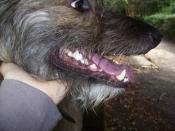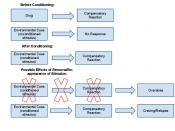The most basic form of learning is associative learning with classical conditioning, thought to be the best for the study of behavioral learning theory. In order to understand how classical conditioning works, one must be familiar with the basic principles of the process.
Theory and Concepts of Classical ConditioningClassical Conditioning is a concept discovered by Ivan Pavlov while studying the digestive system of dogs. The theory of Classical Conditioning states that neutral stimulus paired with a natural response results in a conditioned response being established. In Pavlov's experiments with the dogs, the unconditioned response at seeing the food was salivation. The response paired with the bell is the condition stimulus indicating the possibility of food presentation. Classical conditioning is used to condition autonomic responses without implementing the stimuli that would create a response creating an association between a stimulus that normally would not have any effect on the animal and any stimulus that would (Schneck, 1998).
Pavlov's theories were based upon what he called a classical conditioning model consisting of three steps; a neutral stimulus is given, the neutral stimulus is combined with an unconditioned stimulus which results in an unconditioned response (Abbot, n.d.).
Stimuli that animals react to without training are labeled as primary or unconditioned stimuli. These stimuli range from food and other instinctive stimuli. Any stimuli cause a react only after learning about them are called secondary or conditioned stimuli. The secondary stimuli are associated with a primary stimulus. The bell sound together with food presentation made the sound a conditioned stimulus.
Without associating the sound with the food, there was no effect. A secondary stimuli has to be conditioned to be liked or disliked (Schneck, 1998).
Major ConceptsPavlov discovers four processes associated with classical conditioning: acquisition, extinction, generalization and discrimination. Acquisition is the initial phase in...


